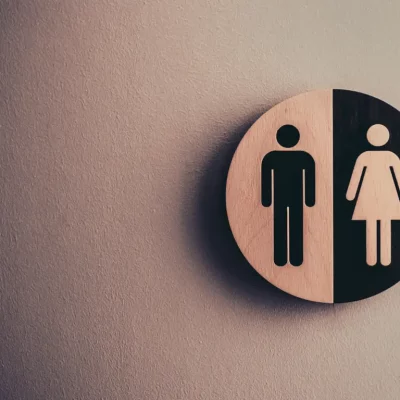“What matters most is not ‘what’ you are, but ‘who’ you are.”
― DaShanne Stokes
What is Gender Dysphoria? Gender Identity and Mental Illness
The discrepancy of a person’s body and their internal sense of gender is not a mental illness. However, the mental illnesses that coincide a person’s struggle with gender identity should be addressed. There is a strong correlation between gender identity and mental illness. The term gender dysphoria describes the thoughts and feelings that one’s gender does not match their biology. “Dysphoria” is defined as a state of dissatisfaction and worry. Both the International Classification of Diseases (ICD) and the Diagnostic and Statistical Manual of Mental Disorders (DSM) have removed the term “gender identity disorder” from their manuals. This created a widespread acceptance of those who struggle with gender dysphoria. These individuals are finally able to receive medical treatment without being classified as having a mental disorder. These emotions can cause severe anxiety, depression, and discomfort that can affect your normal life. Many who struggle with gender dysphoria have difficulties in social gatherings and attending work or school. Keep in mind that gender dysphoria is not the same as being homosexual – the gender that you feel you identify with has nothing to do with your sexual orientation.
Signs and Symptoms of Gender Dysphoria
Children with gender dysphoria will persistently express that they are a girl if they have the physical traits of a boy, or say they are a boy if they have the physical traits of a girl. They also tend to prefer friends of the same gender in which they identify themselves. They will prefer toys, clothing, and games associated with their identified gender as well. Puberty is a difficult time for adolescents with gender dysphoria. During this progression, they may feel embarrassed, confused, and uncomfortable about the physical changes that happen to their body. Teenagers and young adults may start to become more certain that their true identity does not match their physical body. They may develop fears related to showering, changing their clothes, or engaging in sexual relationships.
Treatment of Gender Dysphoria
An estimated 71% of those who struggle with gender dysphoria will experience a mental illness at some point in their lifetime. The possibility of mood, anxiety, eating disorders are likely to develop. Other disorders include depression, schizophrenia, and suicidal thoughts. The treatment process is not focused on changing the thoughts or ideas the individual has about their gender – treatment is recommended to alleviate any concerns or disappointment one may have about these ideas. In order to lessen the symptoms, talking with a psychologist can be helpful. Other treatment methods include presenting yourself as the gender you feel you identify, possibly dressing a certain way and/or going by a different name to feel more accepted.
In order to contain changes that occur during puberty, an individual during this stage may seek the help of puberty blockers. However, this could be a potentially life-changing decision that a person of a young age may not be able to make themselves. Those at this age should discuss the risks and benefits from a medical professional. As they grow older, the option of sex-reassignment surgery may come to mind. This will help the individual feel more comfortable in their body as their desired gender, if they choose to do so.
The Importance of Acceptance
It is important to understand that those with gender dysphoria did not chose to have these thoughts and feelings. When these ideas begin as a child and progress through puberty and adulthood, they are likely to always feel this way. If your child begins to express these symptoms, doctors recommend to let them be who they are and accept them. If they feel ashamed or embarrassed, comfort them and recommend psychotherapy. Social support as well as professional support can help both children and adults with understanding that these symptoms are normal. Referring to the individual by their preferred name and pronoun will help them feel more comfortable and accepted and this is something that society has still not come to terms with realizing. A person who is living a life feeling inauthentic and unreal is more susceptible to mental illness.
How Can We Help?
If you are struggling with gender dysphoria and the mental illnesses associated with it, we are here to help you. With the proper mental health advice, we can alleviate any symptoms and uncertainty you are feeling. We can provide mental health counseling for different types of illnesses right here in our office. Please contact our office at (412)-532-1249 to schedule according to your availability and preferred location.
—
About Makin Wellness
Founded in 2017 , Makin Wellness is Pittsburgh’s premier therapy & coaching centers located in Downtown Pittsburgh and Downtown New Kensington. The company’s mission is to help people heal and become happy again. Makin Wellness specializes in depression, anxiety, addiction, trauma, medical marijuana assisted treatment and relationship counseling.








